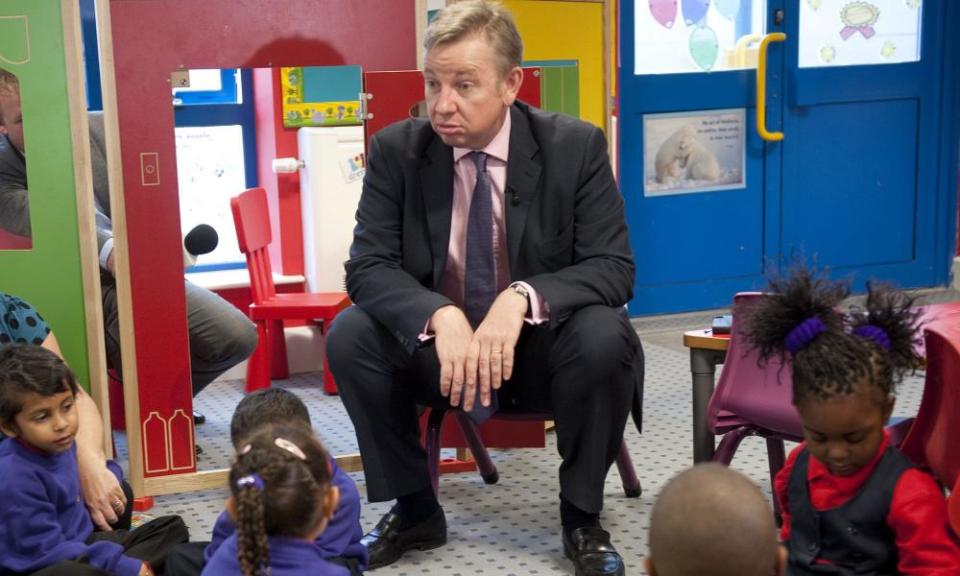Allow six-year-olds to vote? No, but it’s not as crazy as it sounds

The age of adulthood is by definition arbitrary. If everyone matured at the same, fixed rate, it wouldn’t be a human process. Indeed, maturation happens at varying speeds across different categories within the same individual, so I’d say I was easily old enough to vote at 16, but nobody should have given me a credit card until I was 32, and I’ve got the county court judgment to prove it.
However, we broadly agree that there’s a difference between a child and an adult, even if we might bicker about the transition point. So the political theorist David Runciman’s view that six-year-olds should be allowed to vote ventures way beyond any standard argument about the age of civic responsibility. Nobody would say that a six-year-old could be held criminally responsible, could be sent to war, could be capable of consent, could be given responsibility for anything. So allowing them the vote – along with, inevitably, seven-year-olds who are even dafter, if anything – is quite a salty proposition.
Runciman’s argument is that this is the only way to rebalance political life, which is currently skewed in favour of the old, who don’t (he added) ever need to demonstrate mental capacity, even long after they’ve lost it.
The first part of his case is self-evident: pensions are protected while children’s centres are closed, concepts such as sovereignty are prioritised over the far more urgent business of the future: climate change. Nostalgia for a past the young wouldn’t even recognise occupies a centrality that is completely unwarranted.
Problematically, most of the arguments against giving six-year-olds a vote have been capsized by the referendum – what if someone cynically made unrealistic promises to them, which could never be realised, and they ended up voting for something damaging and chaotic, run by charlatans? Well, adults do that.
Of course, it wouldn’t necessarily tilt politics back towards the interests of the future: people don’t always vote in their own best interests. There’s no guarantee that the under-10s wouldn’t get caught in the wild enthusiasms of a climate-change denier, if it came in a clownish and exaggerated package.
What’s to stop parents having even more children, once there’s so much enfranchisement in it for us?
Having said that, children do tend towards the progressive, having a natural sense of justice (which kicks in at the age of six months, psychologists have shown, by simulating scenes of great unfairness to babies, and making them cry) and an underdeveloped sense of self-interest. My kid, when he was six, made quite a trenchant case against private property, on the basis that, since everybody needed a house, they shouldn’t cost money, because nobody would want anyone else not to have one. Also, food should be free. It was a kind of pre-Marx communism, where you limit the coverage of the market to only those things that you wouldn’t mind someone else not having.
This way of thinking would have been quite useful to have on the electoral register at that time when we’d collectively forgotten how to talk about anything except the deficit. On that particular day, he was quite far to the left of me, but in the normal run of things, we’re aligned, which brings us to the nub of the problem: children obey you on almost nothing, but they do seem to cleave to your politics until they’re adolescent. So giving kids the vote is really just a way of giving parents extra votes. And what’s to stop us having even more children, once there’s so much enfranchisement in it for us?
Now, if parents could be trusted to use their influence wisely, and inculcate children with the politics it will take to assure a better future, then I wouldn’t necessarily have a problem with that, apart from, obviously, that culture is already wildly skewed towards parents, and I can envisage a few non-parents brimming over with an inferno of deadly rage. But that’s moot anyway, because parents can’t be trusted, otherwise we’d all already vote Green.
In short: no, six-year-olds should not get the vote; but while we’re here, should any votes come up in the near future, some vote, as a wild for-instance, that will have an impact on the next five decades of British political life, alongside EU migrants, 16-year-olds certainly should be enfranchised.
• Zoe Williams is a Guardian columnist

 Yahoo News
Yahoo News 